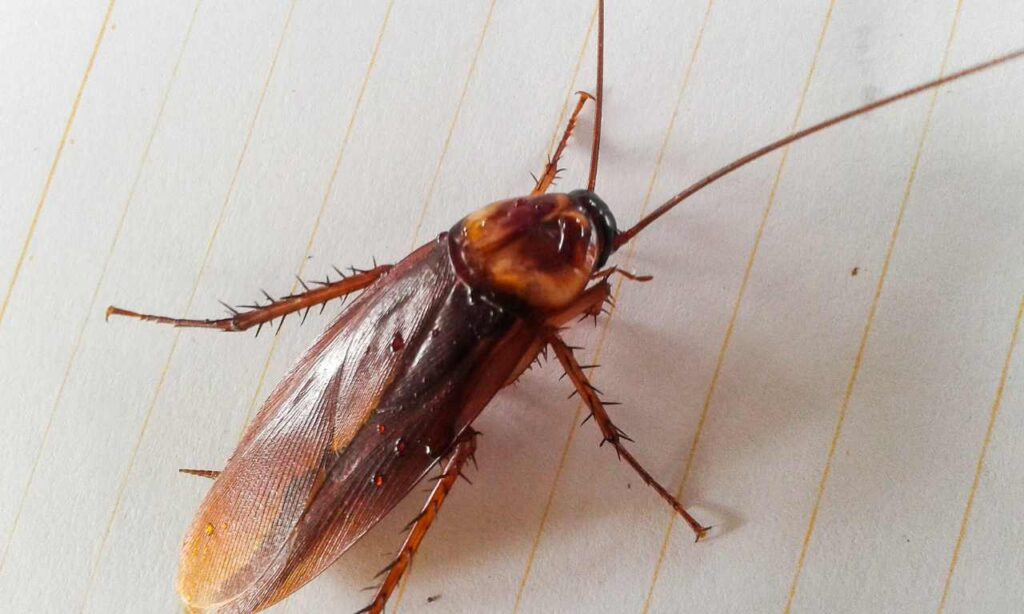
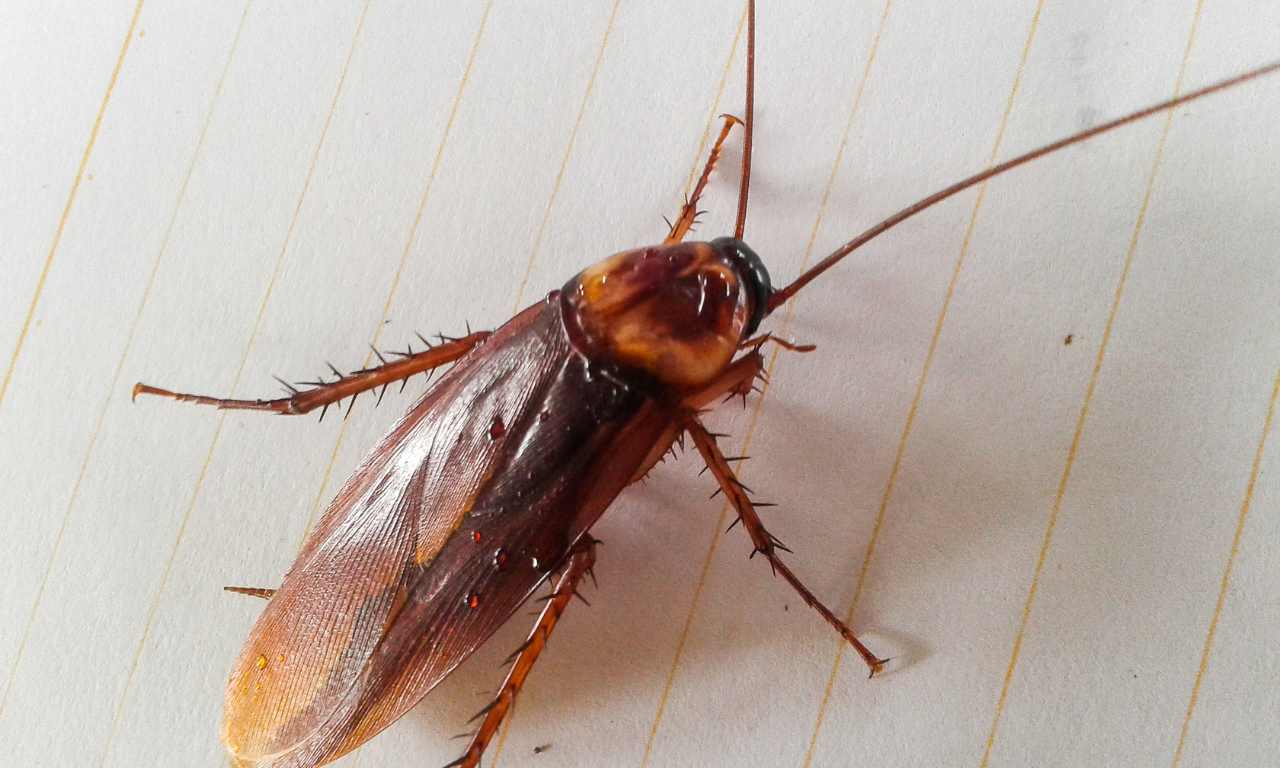 Cockroaches are a type of insect that are commonly found in homes, buildings and other structures. They are known to be hardy and adaptable, and can survive in a wide range of environments.
Cockroaches are a type of insect that are commonly found in homes, buildings and other structures. They are known to be hardy and adaptable, and can survive in a wide range of environments.
Cockroaches are also considered pests, as they can cause damage to property, contaminate food, and spread disease. They are also known to cause allergies and asthma in some individuals. They can be difficult to control and eliminate, as they reproduce quickly and can hide in small spaces.
Brief Info About How Cockroach Can Hurt You
- Allergies and Asthma: Cockroaches can trigger allergic reactions in some people, especially those who are sensitive to their droppings, shed skins and saliva. These reactions can cause symptoms such as sneezing, runny nose, and itchy eyes. Cockroaches can also worsen asthma symptoms.
- Spread of disease: Cockroaches can carry and spread various types of bacteria, such as Salmonella and E. coli, as well as parasites like the protozoan that causes giardiasis. They can also transport pathogens on their bodies, which can lead to the spread of disease.
- Contamination of food: Cockroaches are known to contaminate food sources, which can lead to food poisoning if consumed. They can also leave behind droppings and shed skins, which can lead to the contamination of food and surfaces.
- Damage to property: Cockroaches can damage property by chewing on books, paper, and other materials. They can also cause damage to electrical wiring and appliances.
It is important to note that while cockroaches can be a nuisance and can cause harm, they generally do not bite or sting humans. They are also not known to transmit diseases directly through their bites or stings. Additionally, cockroaches are typically not aggressive towards humans and will typically only bite if they are threatened or if they are attracted to food on a person’s skin.
How Cockroach Causes Allergies and Asthma?
Cockroaches are a common household pest that can cause allergies and asthma in some individuals. They are known to trigger allergic reactions in the nose, lungs, and skin.
One way cockroaches can cause allergies is through their droppings. Cockroach droppings contain proteins that can trigger an allergic reaction in sensitive individuals. When these droppings are disturbed, they release allergens into the air, which can be inhaled by people, leading to symptoms such as sneezing, runny nose, and congestion.
Cockroaches can also cause asthma by triggering an asthma attack in individuals who have the condition. Asthma is a chronic lung disease that causes inflammation and narrowing of the airways, making it difficult to breathe. Cockroaches can trigger asthma symptoms such as wheezing, coughing, and shortness of breath by releasing allergens into the air.
Another way cockroaches can cause allergies and asthma is through their shed skins and body parts. Cockroaches shed their skin as they grow, and these shed skins can contain allergens that can trigger an allergic reaction in sensitive individuals.
Cockroaches can also cause allergies and asthma by carrying other allergens on their bodies, such as dust mites, pet dander, and mold spores. These allergens can be transferred to surfaces throughout a home and can trigger an allergic reaction in sensitive individuals.
In order to prevent cockroach allergies and asthma, it is important to keep your home clean and free of cockroaches. This can be achieved by sealing off entry points, eliminating food sources, and using bait and traps to control the cockroach population.
Removing cockroaches from the environment can be a difficult task, but it is possible with the help of professional pest control service and regular cleaning. Regular vacuuming and dusting can help remove cockroach allergens from the home, reducing the risk of an allergic reaction.
It is also important for individuals who have allergies or asthma to be aware of the presence of cockroaches in their environment and to take steps to reduce their exposure to cockroach allergens. This may include using air purifiers, keeping windows and doors closed, and avoiding areas where cockroaches are known to be present.
In addition, if you suspect you have an allergy or asthma related to cockroaches, it is important to consult with a healthcare professional for proper diagnosis and treatment. Medications such as antihistamines and inhaled steroids can help relieve symptoms, and an allergist may also recommend immunotherapy (allergy shots) to help desensitize the body to cockroach allergens.
How Cockroaches Spread Diseases?
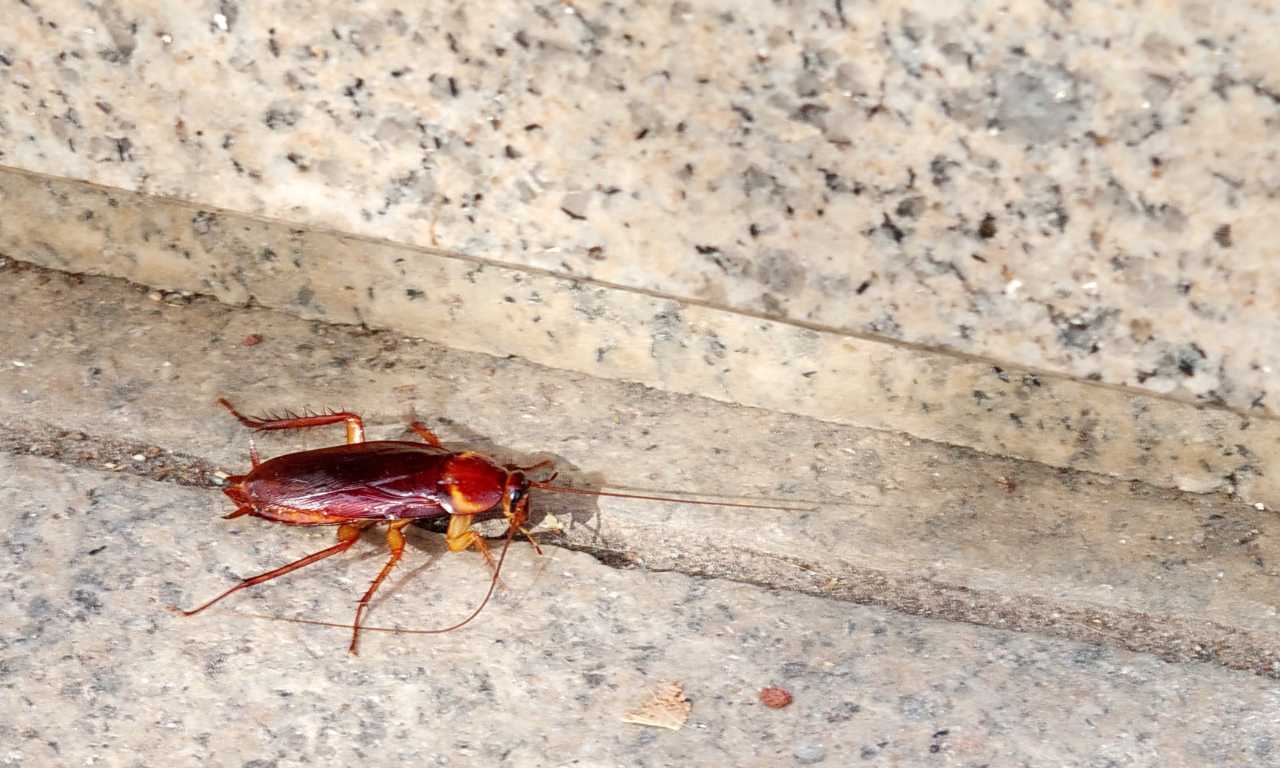 Cockroaches are known to spread a variety of diseases due to their ability to carry pathogens on their bodies and in their feces. They are commonly found in unsanitary environments, such as garbage disposals and sewers, and can easily spread these pathogens to food and surfaces in homes and other buildings.
Cockroaches are known to spread a variety of diseases due to their ability to carry pathogens on their bodies and in their feces. They are commonly found in unsanitary environments, such as garbage disposals and sewers, and can easily spread these pathogens to food and surfaces in homes and other buildings.
One of the ways cockroaches can spread disease is through contamination of food. They are known to forage for food in garbage and sewage, and can transfer bacteria, viruses, and other pathogens to food items in the kitchen. This can lead to food poisoning and other illnesses, particularly in individuals with weakened immune systems.
Cockroaches can also spread disease by contaminating surfaces in the home. They can leave feces and shed skins on countertops, dishes, and other surfaces, which can be a source of bacteria and other pathogens. These pathogens can then be transferred to individuals who come into contact with the contaminated surfaces.
Another way cockroaches can spread disease is through the air. Cockroaches produce a variety of allergens, including fecal particles, shed skins, and body parts, which can be released into the air when they are disturbed. These allergens can trigger asthma and other respiratory problems in sensitive individuals, and can also act as a source of bacterial and viral infections.
Cockroaches have been linked to the spread of several specific diseases, including salmonellosis, dysentery, and typhoid fever. Salmonellosis is caused by the bacteria Salmonella, which is commonly found in the feces of cockroaches.
Dysentery is an infection of the intestinal tract caused by the bacterium Shigella, which can also be spread by cockroaches. Typhoid fever is a serious bacterial infection caused by the bacteria Salmonella typhi, which can be spread through the consumption of food or water contaminated with cockroach feces.
In order to prevent the spread of disease by cockroaches, it is important to maintain good sanitation practices and to keep cockroach populations under control. This can be achieved by keeping food items in sealed containers, regularly cleaning and disinfecting surfaces, and eliminating sources of food and water for cockroaches.
Sealing off entry points, such as cracks and crevices, in the home can also help prevent cockroaches from entering and establishing a population.
It is also important to practice good hygiene and to wash your hands frequently, especially after coming into contact with cockroaches or their droppings.
Professional pest control service can also be effective in controlling cockroach populations and preventing the spread of disease.
How Cockroach Contaminates Food?
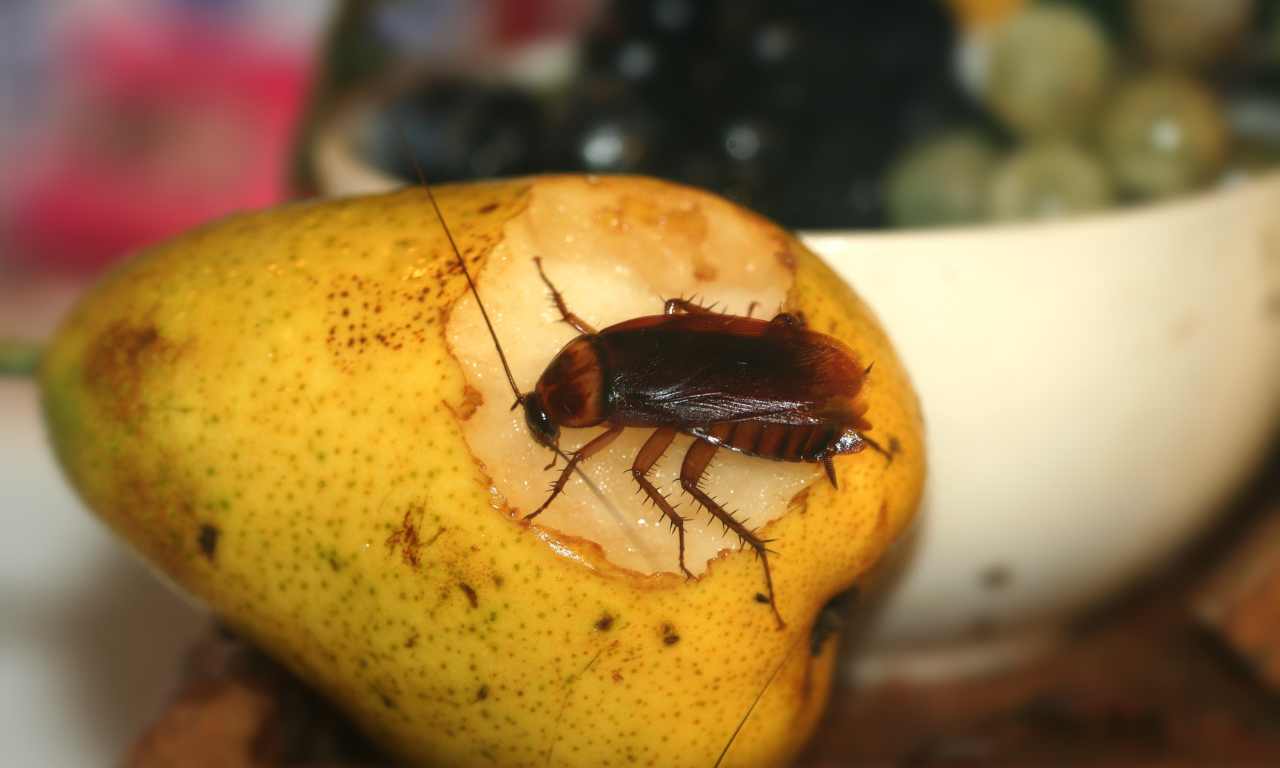 Cockroaches are known to contaminate food by carrying pathogens on their bodies and in their feces, which can lead to food poisoning and other illnesses. They are commonly found in unsanitary environments, such as garbage disposals and sewers, and can easily spread these pathogens to food items in homes and other buildings.
Cockroaches are known to contaminate food by carrying pathogens on their bodies and in their feces, which can lead to food poisoning and other illnesses. They are commonly found in unsanitary environments, such as garbage disposals and sewers, and can easily spread these pathogens to food items in homes and other buildings.
One way cockroaches can contaminate food is through direct contact. Cockroaches are attracted to food sources, such as crumbs and spills, and can easily crawl onto food items and contaminate them with bacteria, viruses, and other pathogens. This is particularly concerning in areas where food is being prepared, such as kitchens, as it can lead to cross-contamination and the spread of illness.
Cockroaches can also contaminate food by leaving droppings, shed skins, and body parts on food items and surfaces. These materials can act as a source of bacteria and other pathogens, which can then be transferred to food items and cause illness.
Another way cockroaches can contaminate food is through the air. Cockroaches produce a variety of allergens, including fecal particles, shed skins, and body parts, which can be released into the air when they are disturbed. These allergens can trigger asthma and other respiratory problems in sensitive individuals and can also act as a source of bacterial and viral infections.
Cockroaches are known to carry several specific pathogens, including salmonella and E.coli. Salmonella is a type of bacteria that can cause food poisoning, and it is commonly found in the feces of cockroaches. E.coli is another type of bacteria that can cause food poisoning and is also commonly found in the feces of cockroaches.
To prevent cockroaches from contaminating food, it is important to maintain good sanitation practices and to keep cockroach populations under control. This can be achieved by keeping food items in sealed containers, regularly cleaning and disinfecting surfaces, and eliminating sources of food and water for cockroaches.
Sealing off entry points, such as cracks and crevices, in the home can also help prevent cockroaches from entering and establishing a population.
It is also important to practice good hygiene and to wash your hands frequently, especially after coming into contact with cockroaches or their droppings.
How Cockroach Damage Property?
Cockroaches are a common household pest that can cause damage to property in several ways. They are known to chew on various materials, including paper, cardboard, and insulation, and can also cause structural damage by burrowing into wood and other materials.
One way cockroaches can damage property is through their feeding habits. Cockroaches are known to chew on paper, cardboard, and other similar materials, which can lead to holes and damage to books, papers, and other items. This can be particularly damaging in areas where important documents and records are stored, such as offices and libraries.
Cockroaches can also cause damage to electrical wiring and appliances. They are known to be attracted to warm and humid environments and can often be found in the vicinity of appliances such as refrigerators, ovens, and dishwashers. They can chew on electrical wiring, causing shorts and other electrical issues, which can lead to costly repairs and even fires.
Another way cockroaches can damage property is through their burrowing habits. Cockroaches are known to burrow into wood and other materials, which can cause structural damage to buildings and furniture. This can lead to weakened structures and even collapse, particularly in older buildings with weakened structural integrity.
Cockroaches can also damage property by leaving droppings and shed skins in various areas. These materials can be unsanitary and can cause unpleasant odors, and can also discolor and damage surfaces.
Cockroaches are also known to spread disease, which can have serious health consequences for people who come into contact with them, and also can lead to potential lawsuits.
To prevent cockroaches from damaging property, it is important to keep your home clean and free of cockroaches. This can be achieved by sealing off entry points, eliminating food sources, and using bait and traps to control the cockroach population.
Regular cleaning and vacuuming can also help to remove cockroach droppings, shed skins, and other debris, reducing the risk of damage. It is also important to be aware of the presence of cockroaches in your environment and to take steps to reduce your exposure to them.
This may include using air purifiers, keeping windows and doors closed, and avoiding areas where cockroaches are known to be present. In addition, professional pest control service can be effective in controlling cockroach populations and preventing damage to property.
What Happens If A Cockroach Touches You?
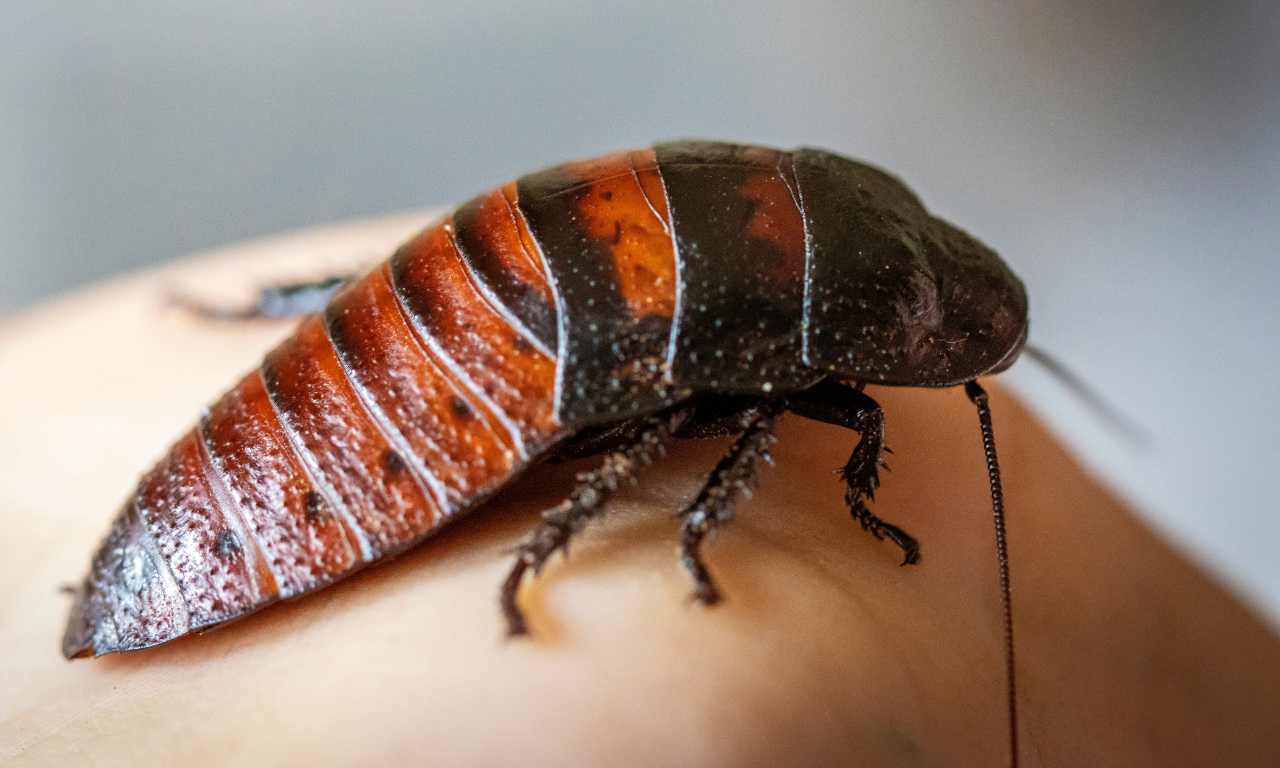 If a cockroach touches you, it is unlikely to cause any harm, as cockroaches are not known to be dangerous to humans. They do not bite or sting, and their exoskeleton, or outer shell, is not toxic. However, there are a few things to keep in mind if a cockroach comes into contact with your skin.
If a cockroach touches you, it is unlikely to cause any harm, as cockroaches are not known to be dangerous to humans. They do not bite or sting, and their exoskeleton, or outer shell, is not toxic. However, there are a few things to keep in mind if a cockroach comes into contact with your skin.
One of the most common reactions to a cockroach touch is disgust or fear. Cockroaches are often associated with unsanitary conditions and can be considered unpleasant to touch. They are also considered as pests and are associated with negative emotions. So, it is normal to feel disgusted or uncomfortable if a cockroach touches you.
Another potential reaction to a cockroach touch is an allergic reaction. Some people may be allergic to cockroaches and can experience symptoms such as itching, redness, and swelling of the skin. These symptoms are usually mild and can be treated with over-the-counter antihistamines or topical creams.
Cockroaches can also carry diseases and can transfer these pathogens to humans through contact. They are known to carry a variety of bacteria, viruses, and parasites that can cause illnesses such as food poisoning, salmonellosis, and typhoid fever. However, the risk of contracting a disease from a cockroach touch is considered to be low, as cockroaches are not known to transmit diseases through direct contact.
Cockroaches can also leave their droppings, shed skins, and body parts on surfaces, including human skin, which can cause irritation and discomfort. These materials can also act as a source of bacteria and other pathogens, which can lead to infection if they come into contact with cuts or open wounds on the skin.
If a cockroach does touch your skin, it is important to clean the affected area thoroughly with soap and water to remove any bacteria or allergens that may be present. It is also a good idea to wash your hands thoroughly to prevent the spread of any pathogens that may be present.
In order to prevent cockroaches from coming into contact with your skin, it is important to keep your home clean and free of cockroaches. This can be achieved by sealing off entry points, eliminating food sources, and using bait and traps to control the cockroach population. Regular cleaning and vacuuming can also help to remove cockroach droppings, shed skins, and other debris, reducing the risk of contact.
If you suspect that you may be allergic to cockroaches or have developed an infection as a result of contact with a cockroach, it is important to seek medical attention. An allergist can help determine if you have an allergy to cockroaches and recommend treatment options, while a healthcare professional can diagnose and treat any infections that may have developed as a result of contact with a cockroach.
Welcome to my blog. I have been doing pest control for years since my house, garden and pets were always attacked by various kinds of pests and as a result I had to know proper pest control techniques that works. In this blog I share all the tips and tricks that I know and I hope you’ll find it helpful.
